#countess Irma Sztáray
Explore tagged Tumblr posts
Text
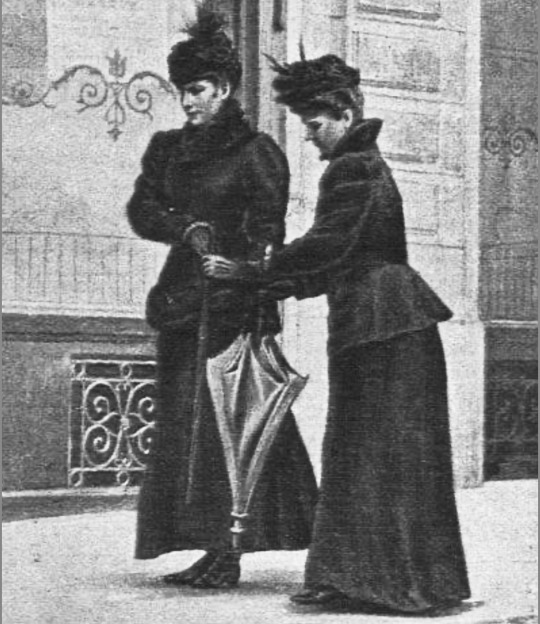
On this day; September 10th 1898, Empress Elisabeth of Austria was assassinated by Italian anarchist Luigi Lucheni in Geneva Switzerland.
On September 10th at 1:35 pm the Empress and Countess Irma Sztaray, her lady in waiting leave the hotel. All the other staff in service of Elisabeth has already left Geneva by train, and stubborn as she is, Elisabeth refused to take bodyguards with her.
[Anarchist Luigi Lucheni] approached the ladies when they walk by and acts as if he stumbles and falls against Elisabeth, stabbing her with a sharpened needle file. Elisabeths falls down, but is helped up again by a coach driver and she and the countess continue to walk to the gangway and board the ship. Elisabeth even talks to the countess, saying that Luigi perhaps tried to steal her watch. She nor any of the bystanders, realize that she is stabbed. Luigi did not miss, his file punctured the body of the empress for 8.5 cm, broke the fourth rib, pierced the lung and penetrated the heart fully. The fact that Elisabeth could get up and walk on is first of all due to the good shape Elisabeth is in.
Empress Elisabeth faints for the first time when on board of the ship. She comes to again, probably because the new blood flow that reaches her brain because of her horizontal position as she is now laying down. She asks the countess what has happened, still no [idea] of her situation. Only after opening of the corset by the countess, causing the blood reserve to spread over the rest of the body, the empress faints for the second and last time.
Countess Sztaray than sees the small blood stain on Sisi’s breast and raises the alarm. The captain of the boat, Captain Roux, is made aware of the identity of the fainted lady and immediatley turns the boat around towards the landing stage in front of the Hotel Beau-Rivage. A stretcher is improvised from sails and peddles and six boatmen carry the empress back to her hotel room.
To check if the Empress is still alive Dr. Mayer makes a small incision in Sissi's arm, but there is no blood flow, and the Empress is pronounced dead at 2:20, September 10th, 1898. The priest that arrived together with the doctors is too late to grant her absolution.
Source: (x)
#Sorry! I couldn’t find a primary source!#empress elisabeth of austria#elisabeth of austria#1898#on this day#september 10#countess Irma Sztáray#Irma Sztáray#luigi lucheni#assasination#empress sisi#Empress Elisabeth of Austria death
34 notes
·
View notes
Text






Blue moments - Susanne Wolff and Sandra Hüller as Empress Elisabeth and Countess Irma Sztáray. Sisi and I / Sisi & Ich (2024).
#sisi and I#sisi & ich#sisi & I#tv and film#oceancentury#sandra hüller#Sandra huller#Blue#august#august 2024#blue august#screenshots
47 notes
·
View notes
Note
just out of general curiosity, has there ever been any reports about how sisi looked when she was older?
Hello! There are few but detailed descriptions are rare, usually people who met Elisabeth in her old age didn't comment on how she looked, out of respect I suppose. Brigitte Hamann in her biography of Elisabeth quotes two testimonies of people that saw the empress as an older woman:
Many observers noted the great disparity between legend and reality. One of these was Prince Alfons Clary- Aldringen, who saw the Empress in Territet when he was a small boy in 1896—1897. He and his sister were in the hills behind the hotel where both the Clary family and the Empress were staying. When they saw the black, slender figure of the Empress, the children blocked her path, “and lo and behold, because no adult was nearby, this time the Empress did not open her fan! My sister curtseyed, and I made my best bow; she smiled at us in a friendly way — but I was stunned, for I saw a face full of wrinkles, looking as old as the hills.”
When the children spoke to their grandmother of the encounter, she solemnly told them, “Children, do not forget this day, when you saw the most beautiful woman in the world!” Alfons Clary: “In response to my smart-aleck answer, ‘But, Grandmama, her face is all wrinkled!’ I received a hefty slap.”
(...) Only very, very few still knew the Empress during her final years. To accidental observers, encounters with her during this time were deeply disappointing. For example, the actress Rosa Albach-Retty saw the Empress and her lady-in-waiting. Countess Sztaray, in 1898 in a small country inn in Bad Ischl. Since Elisabeth’s true appearance was nowhere pictured, Retty did not recognize the ladies at once. One was “clearly in mourning, for with her black, high-necked dress she wore black laced boots and a black hat, its thick veil turned back over a broad brim.” It was the Empress. The other lady, younger and in light clothing. Countess Sztaray, briefly went into the inn, leaving Elisabeth alone at the table. Rosa Albach-Retty: “For seconds Elisabeth stared downward, then with her left hand she took out her dentures, held them sideways over the edge of the table, and rinsed them off by pouring a glass of water over them. Then she put them back in her mouth. All this was done with such graceful nonchalance, but most particularly at such lightning speed, that at first I could not believe my eyes.” (1986, p. 360)
For what I could find, the sources for these statements are memoirs published decades after the end of the monarchy - unsurprising that they describe the empress in such a graceless way. For instance, compare it to how Countess Irma Sztáray, Elisabeth's lady-in-waiting, describes in her memoirs, published in 1909, her first meeting with the empress in 1894:
With a beating heart, I stood with my companion at the corner of the villa. I immediately caught sight of Her Majesty walking. Under her large white parasol, the light fell on her loose, billowing hair, which enveloped her royal figure like a sparkling cape. Then she turned around. We approached, and I was introduced. There was something about her that fascinated me. When her gaze, in which sadness could be read, fell upon me for the first time, I felt as if I had fallen under the spell of a supernatural being, and the painful feeling of my mediocrity, of my banality, invaded me. I don’t know if she noticed it, but the fact remains that she came to my aid with that gracious smile that bewitched you—and freed you. It was a truly unforgettable audience.
(...) My shyness melted like snow in the sun. I perceived the proximity of a great and beautiful soul who encouraged me, and even elevated me. Certainly, I had the impression that I would never reach her height of views, nevertheless I felt drawn, lifted up by her goodness. I guessed the force of her ascendancy over others, and immediately, from this first meeting, I placed my whole soul in her hands, by virtue of the irresistible attraction exercised by beings who aspire to elevated spheres. (2009, p. 30-31)
To be honest, I don't think any of these testimonies are particularly reliable, they're all from years after Elisabeth's death, and were written having in mind that there would be an audience reading them. So if I ever find a contemporary description of her I'll definitely share it!
Sources:
Hamann, Brigitte (1986). The Reluctant Empress: A Biography of Empress Elisabeth of Austria (translation by Ruth Hein)
Sztáray, Irma (2009). Mes années avec Sissi. Par la derniére dame d’honneur d’Elisabeth d’Autriche (translation by Michéle Valencia)
#fun fact: rosa albach-retty was romy schneider's grandmother. unfun fact: she was also a n*zi#empress elisabeth of austria#asks
11 notes
·
View notes
Text
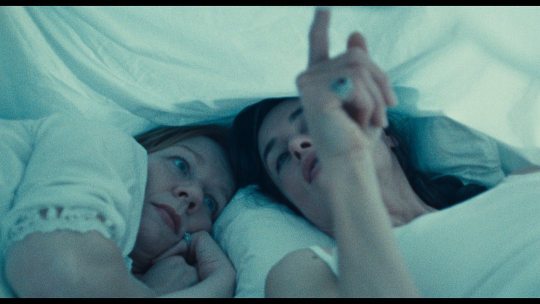




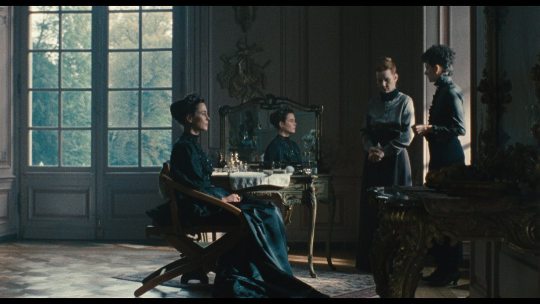

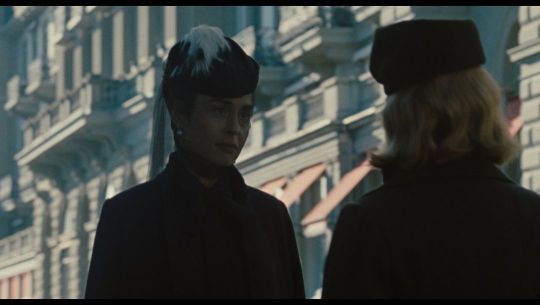
Susanne Wolff and Sandra Hüller as Empress Elisabeth and Countess Irma Sztáray in Sisi & Ich (2023).
#Sisi und ich#Sisi and I#costume drama#historical drama#period drama#Susanne Wolff#Sandra Hüller#elisabeth in bavaria#elisabeth of austria hungary#elisabeth of austria#irma sztáray#german movie
64 notes
·
View notes
Text
On this day...
....10 September 1898 Empress Elisabeth (Sissi) of Austria was assassinated in Switzerland by the anarchist Luigi Lucheni.
When Elisabeth was sixty years old, she followed an invitation from the Rothschild family to Geneva.
Together with her lady-in-waiting, the Hungarian Countess Irma Sztáray, she walked the short distance between the hotel and the pier without her entourage, despite warnings of possible assassination attempts.
Luigi Lucheni, a poor man full of rage for the upper nobility, ran towards them as they walked by on the promenade and stabbed Elisabeth directly into her heart with a self-made weapon composed of a small sharp file.
But neither the empress nor her lady-in-waiting realised what really happened. Thinking of a robbery attempt, they went on boarding the ship.
A few minutes later, Elisabeth lost consciousness and died. (http://www.europeana-newspapers.eu/)
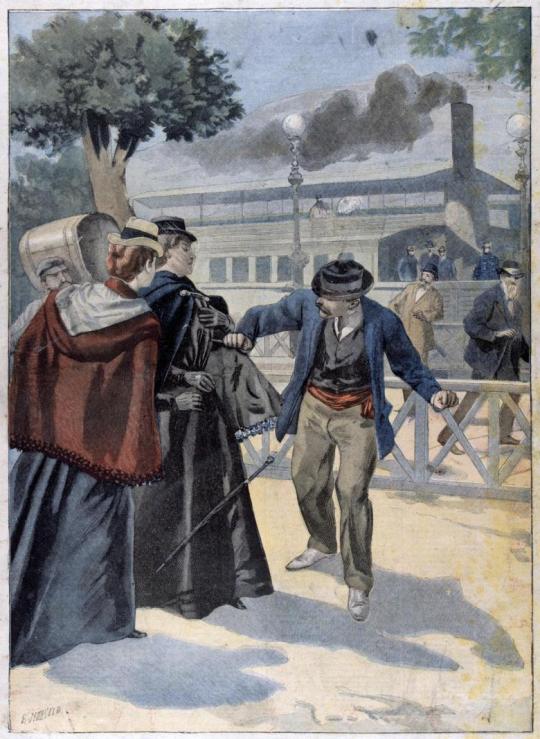
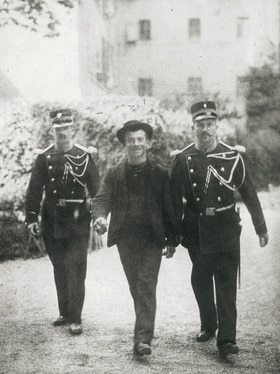
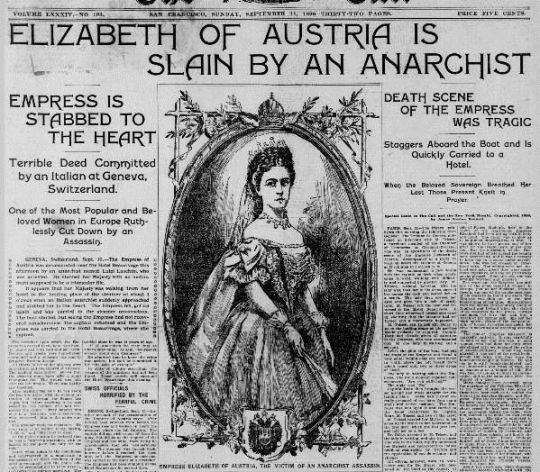
66 notes
·
View notes
Photo
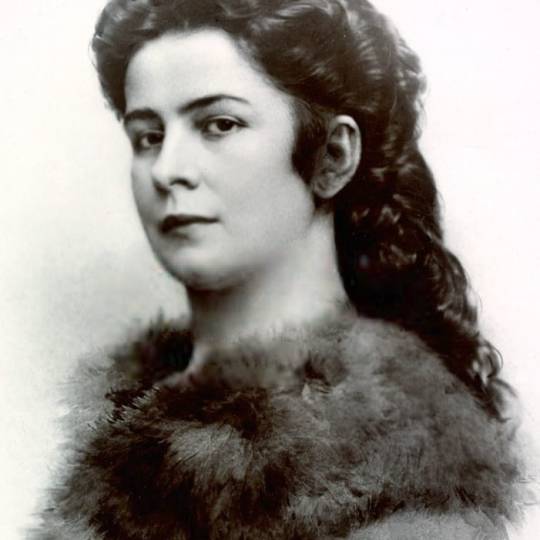
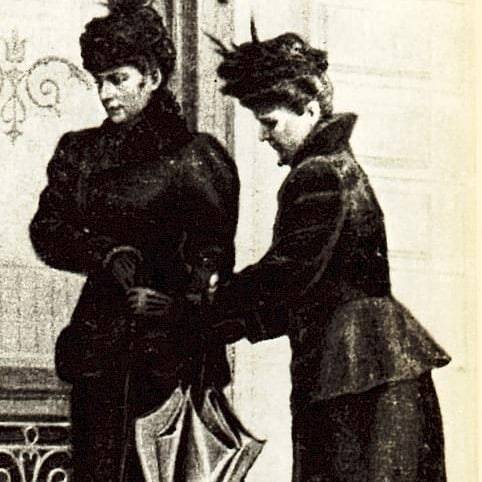
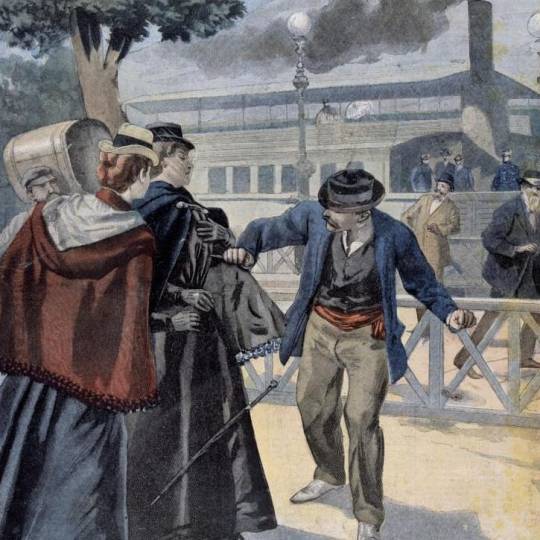
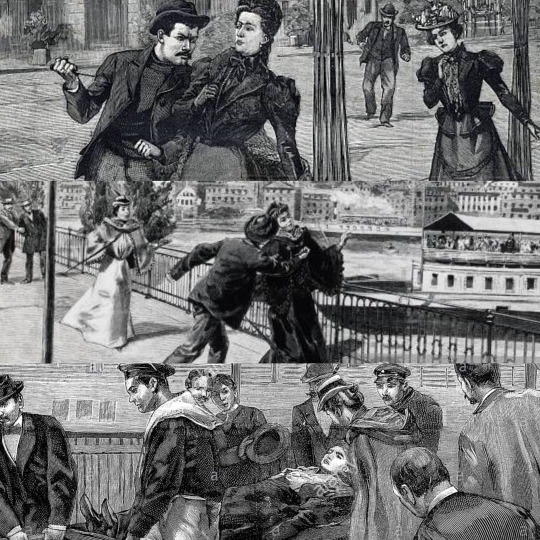
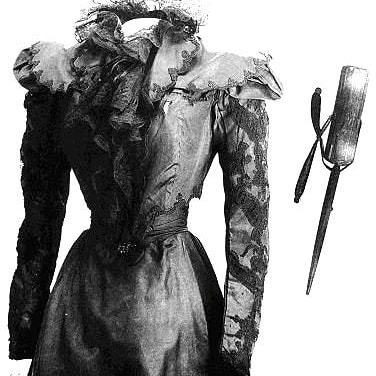
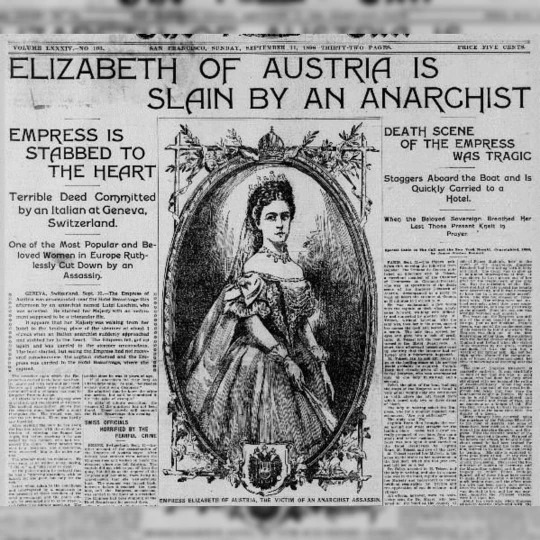
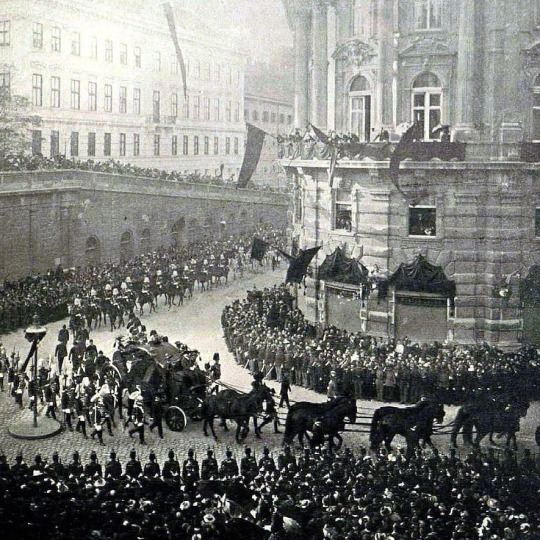
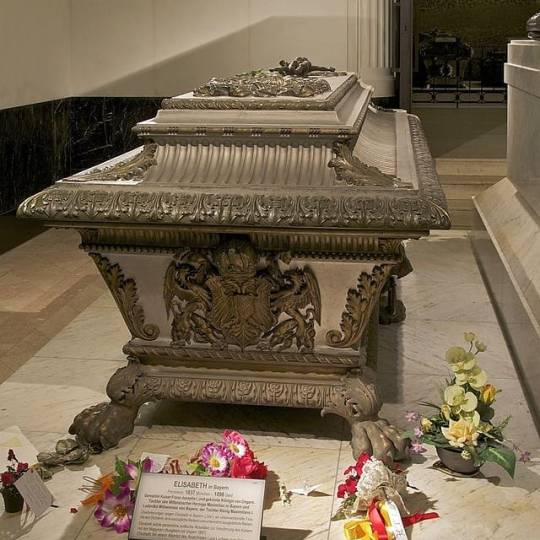
On 10 September 1898, the 60-year-old Empress Elisabeth of Austria was assassinated in Geneva.
In 1898, despite warnings of possible assassination attempts, Elisabeth travelled incognito to Geneva, Switzerland. At 1:35 p.m. on 10 September, Elisabeth and Countess Irma Sztáray de Sztára et Nagymihály, her lady-in-waiting, left their hotel to catch the steamship bound for Montreaux. They were walking along the promenade when the 25-year-old Italian anarchist Luigi Lucheni approached them and as the ship's bell announced the departure, Lucheni seemed to stumble and made a movement with his hand as if he wanted to maintain his balance.
In reality, he had stabbed Elisabeth with a sharpened needle file that was 4 inches (100 mm) long that he had inserted into a wooden handle. After Lucheni struck her, the Empress collapsed but was helped to her feet and continued walking. It seems that Elisabeth did not at first realise what had happened for she assumed that Lucheni was trying to rob her. Shortly after boarding the boat, Elisabeth lost consciousness. The captain ordered the ferry back to Geneva. As the boat was already sailing out of the harbour three men had to carry Elisabeth on to the top deck and laid her on a bench.
It was only when Countess Irma opened Elizabeth's dress and cut her corset laces so she could breathe that a small brown stain above the empress's left breast was noticed. Elisabeth revived somewhat and when asked if she was in pain, she replied, "No". She then asked, "What has happened?" and lost consciousness again. Elisabeth was then carried to the Hotel Beau-Rivage. Fanny Mayer, the wife of the hotel director, a visiting nurse, and the countess undressed Elisabeth and removed her shoes, but when they then removed her from the stretcher to the bed she was clearly dead. Two doctors, Dr. Golay and Dr. Mayer arrived, along with a priest, who was too late to grant her absolution. She was pronounced dead at 2:10 p.m.
The autopsy was performed the next day by Dr. Golay, who discovered that the weapon, had penetrated 3.33 inches (85 mm) into Elisabeth's thorax, fractured the fourth rib, pierced the lung and pericardium, and penetrated the heart from the top before coming out the base of the left ventricle. Because of the sharpness and thinness of the file the wound was very narrow and due, to pressure from Elisabeth's extremely tight corseting, the haemorrhage of blood into the pericardial sac around the heart was slowed to mere drops. Had the weapon not been removed, she would have lived a while longer, as it would have acted like a plug to stop the bleeding. When Franz Joseph received the telegram informing him of Elisabeth's death, he feared that she had committed suicide and was only later relived when a later message arrived, detailing the assassination. Elisabeth's body was placed in a triple coffin and was carried back to Vienna aboard a funeral train. The entire Austro-Hungarian Empire went into mourning and 82 sovereigns and high-ranking nobles followed her funeral cortege on the morning of 17 September. Despite her wish to be buried in Corfu, Elisabeth was laid to rest in the Capuchin Church, the traditional burial site for the Habsburgs.
Lucheni was caught shortly after the attack and was brought before the Geneva Court. He originally planned to kill the Duke of Orléans, but the Pretender to France's throne had left Geneva earlier than expected and failing to find him, the assassin selected Elisabeth when he discovered that the woman travelling under the pseudonym of "Countess of Hohenembs" was the Empress Elisabeth of Austria. "It did not matter to me who the sovereign was whom I should kill...It was not a woman I struck, but an Empress; it was a crown that I had in view." Lucheni was incarcerated for life, and ten years later, he hanged himself with his belt in his cell. Franz Joseph remarked to Prince Liechtenstein, "That a man could be found to attack such a woman, whose whole life was spent in doing good and who never injured any person, is to me incomprehensible". Elisabeth's friend, the poet Carmen Sylva, pointed out that this death was terrible "only for the world", but that for Elisabeth it was "beautiful and calm and great in the sight of beloved great nature, painless and peaceful." Her daughter, Archduchess Marie Valerie, expressed similar thoughts, "Now it has happened as she always wished it to happen, quickly, painlessly, without medical treatment, without long, fearful days of worry for her dear ones.
31 notes
·
View notes
Text
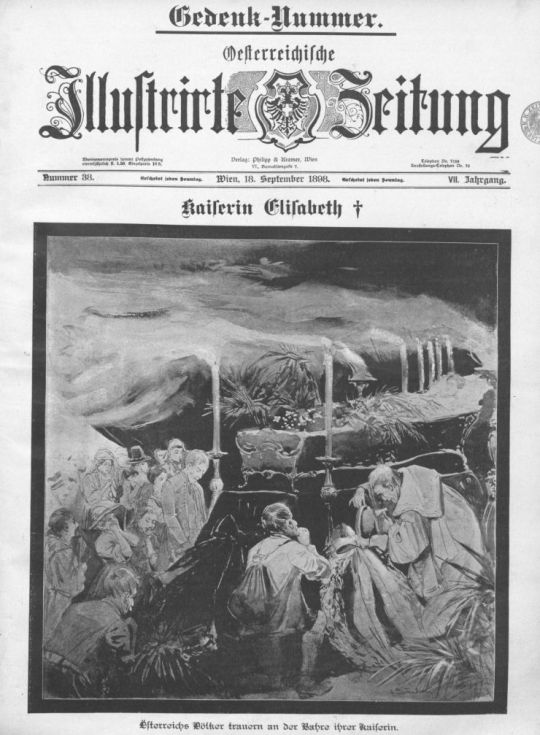
As a young man I was forced to watch the most boring movies about a young empress called Sissi, usually the movies would be on around Christmas time.
Not only were they boring, they were also extremely long and it was a trilogy.They were made between 1955 and 1957.
Sissi, The Young Empress Sissi, Die junge Kaiserin Year: 1956 – Austria Romy Schneider, Karlheinz Bohm Director: Ernst Marischka Poster, France. It is forbidden to reproduce the photograph out of context of the promotion of the film. It must be credited to the Film Company and/or the photographer assigned by or authorized by/allowed on the set by the Film Company. Restricted to Editorial Use. Photo12 does not grant publicity rights of the persons represented.
Siss, The fateful Years of an Empress Sissi, Schicksalsjahre einer Kaiserin Year: 1957 – Austria Director: Ernst Marischka Poster, French. It is forbidden to reproduce the photograph out of context of the promotion of the film. It must be credited to the Film Company and/or the photographer assigned by or authorized by/allowed on the set by the Film Company. Restricted to Editorial Use. Photo12 does not grant publicity rights of the persons represented.
The movies were all idyllic and dripping with sweetness. However the real life of the Empress Elisabeth of Austria,was far from sweet and idyllic.
Elisabeth was born on December 24, 1837, from an early age she was called ‘Sisi’ (in the movies they added an extra s to the name)by her family. Elisabeth was never meant to be Empress. That honor was supposed to go to her sister Helene, who had been trained since birth to be an Empress. The marriage was meant to make up for the marital misalliance of her mother, Ludovica, the daughter of Ludwig I of Bavaria. While her sisters had made grand marriages, Elisabeth to the Prussian Emperor and Sophie to the Crown Prince of Austria, Ludovica had married her first cousin, Duke Max, who wasn’t even a Royal Highness until he was elevated to that title.
When she was 15, Elisabeth, her mother, and her sister Helene went to Bad Ischl to stay with their cousin, the Emperor Franz Joseph, so that he could have a look at Helene. Instead, the young emperor fell in love with Elisabeth instead. Although not as beautiful as her sister, Elisabeth had almond shaped brown eyes, and auburn hair which fell to her knees when unbound.
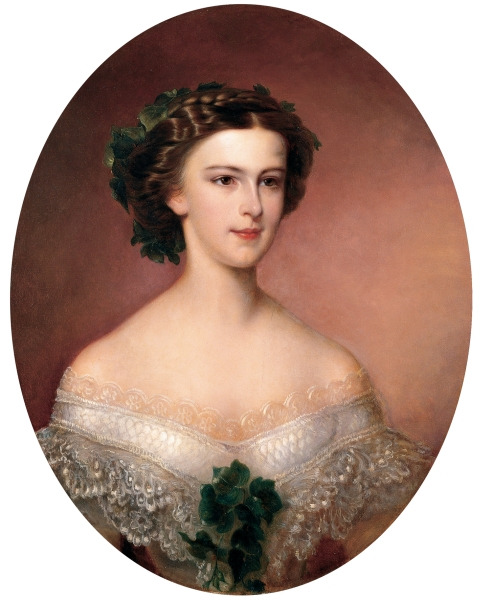
She was shy and awkward around the Emperor but he was entranced. At a ball, he not only gave her a dance bouquet but all the flowers that were meant for all the other ladies. The next day, her mother told her that the Emperor wanted to marry her. Despite her own misgivings about her fitness for the role she was about to undertake, Elisabeth couldn’t dare refuse the honor. And she was fond of Franz Joseph.
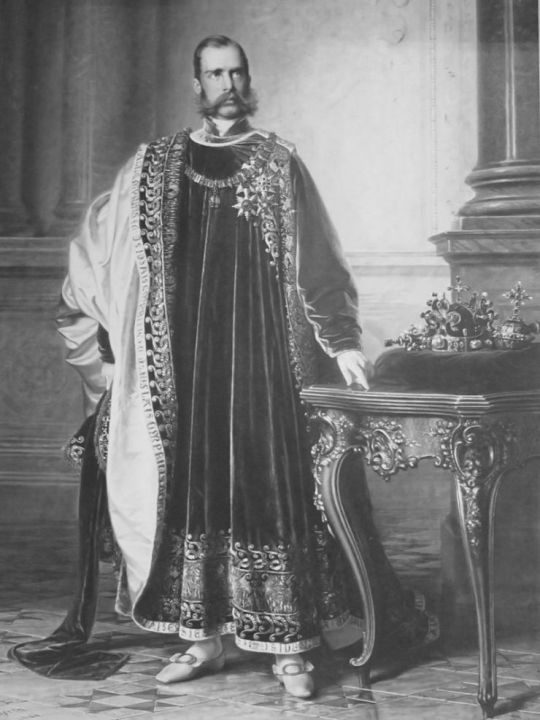
As a Bavarian princess who enjoyed a happy and unstrained childhood, the extremely strict court life in Vienna was a burden Elisabeth never got used to. She started to travel and wrote melancholic poems, and after the tragic death of her only son Rudolf she disappeared nearly completely from the Austrian court.
When Elisabeth was sixty years old, she followed an invitation from the Rothschild family to Geneva. Together with her lady-in-waiting, the Hungarian Countess Irma Sztáray, she walked the short distance between the hotel and the pier without her entourage, despite warnings of possible assassination attempts.
Luigi Lucheni, a poor man full of rage for the upper nobility, ran towards them as they walked by on the promenade and stabbed Elisabeth directly into her heart with a self-made weapon composed of a small sharp file. But neither the empress nor her lady-in-waiting realised what really happened. Thinking of a robbery attempt, they went on boarding the ship. A few minutes later, Elisabeth lost consciousness and died on September 10 1898
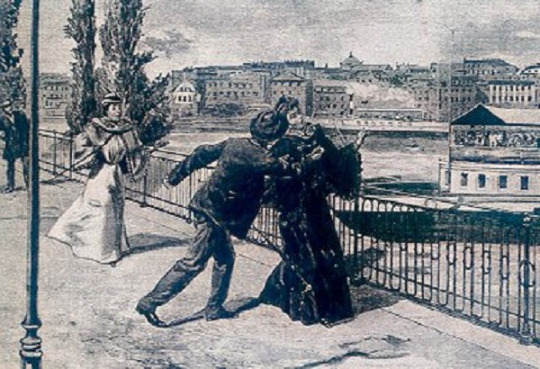
As Geneva shuttered itself in mourning, Elisabeth’s body was placed in a triple coffin: two inner ones of lead, the third exterior one in bronze, reposing on lion claws. On Tuesday, before the coffins were sealed, Franz Joseph’s official representatives arrived to identify the body. The coffin was fitted with two glass panels, covered with doors, which could be slid back to allow her face to be seen.
On Wednesday morning, Elisabeth’s body was carried back to Vienna aboard a funeral train. The inscription on her coffin read, “Elisabeth, Empress of Austria”. The Hungarians were outraged and the words, “and Queen of Hungary” were hastily added.The entire Austro-Hungarian Empire was in deep mourning; 82 sovereigns and high-ranking nobles followed her funeral cortege on the morning of 17 September to the tomb in the Capuchin Church.
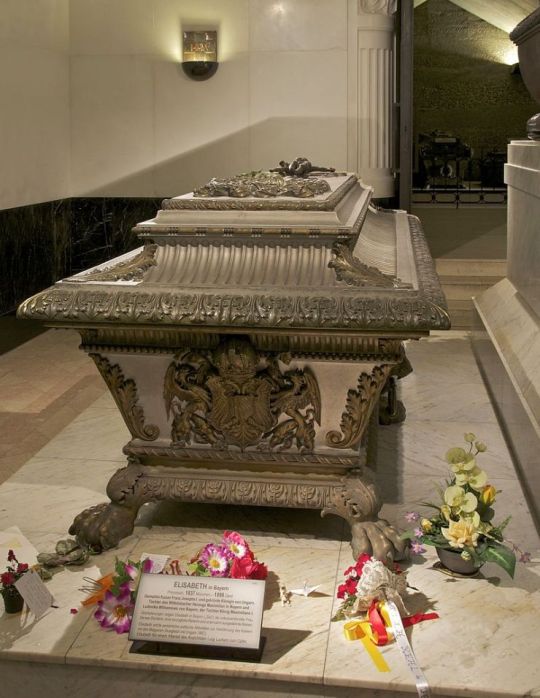
The last movie called “Sissi-the Fateful years”did not address the assassination of the empress.
The actress Romy Schneider who played her also had a tragic end, she committed suicide on May 29 1982.
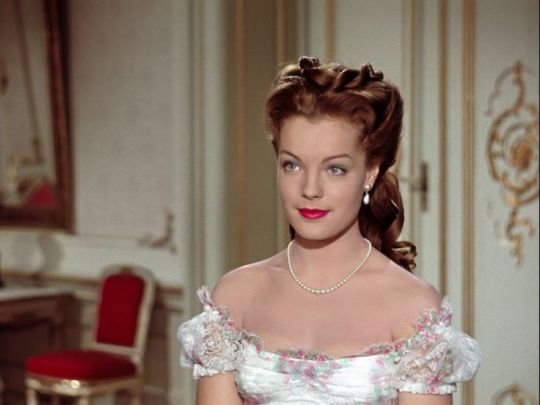
Sissi- The death of an Empress As a young man I was forced to watch the most boring movies about a young empress called Sissi, usually the movies would be on around Christmas time.
1 note
·
View note
Text


Susanne Wolff and Sandra Hüller as Empress Elisabeth and Countess Irma Sztáray in Sisi & I / Sisi & Ich (2023).
#sisi and I#sisi and ich#sandra hüller#Sandra huller#tv and film#same#my post#empress sissi#Elizabeth of Austria#empress elisabeth of austria#royalty#royal#Blue#blue august#august#august 2024#oceancentury
9 notes
·
View notes
Note
What books about Sisi do you recommend? 😄 Which ones are the best in your opinion?
Hello! I'm sorry for answering this so awfully late. I already recommended some of these books always before, but I tried to give some new recomendations this time!
BIOGRAPHIES:
Elizabeth, empress of Austria by Egon Conte Corti. The first biography of the empress based on primary sources; this work is to this day a point of reference for any historian who wants to write about Sisi. The book, first published in 1934, is however outdated and slightly biased (the children of archduchess Marie Valerie were the ones who opened up the family archives for Corti after all). Translations available in English, Spanish, French, Italian, Hungarian, Slovak, Polish and Dutch.
The Reluctant Empress, by Brigitte Hamann. The most well sourced biography since Corti's. Hamann's book departed from the fairy tale princess image that had been established since the 50s and depicted Elisabeth as a complicated and far from perfect woman. The book, first published in 1982, is however slightly outdated and biased (Hamann just hated Elisabeth lol). There are translations available in English, Spanish, Hungarian, French, Italian, Czech, Polish and Romanian.
Sisis Weg: Vom Mädchen zur Frau by Martina Winkelhofer. I made a full review of this book last month but in short: a refreshing study at Elisabeth's childhood, teenhood and first years as empress that rely on newly available primary sources. I wouldn't recommend this book as your first approach to Elisabeth though, since Winkelhofer assumes the reader is already familiar with the "Sisi myth" and doesn't tend to give much historical context outside the necessary, which may be confusing if you aren't familiar with 19th century European history in general. Translations available in Italian, Polish and Czech.
PUBLISHED DIARIES, LETTERS AND MEMOIRS:
Das Tagebuch der Lieblingstochter von Kaiserin Elisabeth edited by Martha and Horst Schad. Archduchess Marie Valerie's diary from 1878 until 1899. I own a copy of this book and I've been slowly reading it, maybe one day I'll finally finish it. There are translations available in Italian, Hungarian and Czech.
Briefe Kaiser Franz Josephs an Kaiserin Elisabeth, 1859-1898 edited by Georg Nostitz-Rieneck. A compilation of the emperor's letters to his wife. Available (as far as I know) only in German.
Lieber Rudolf: Briefe von Kaiser Franz Joseph und Elisabeth an ihren Sohn edited by Friedrich Weissensteiner. A compilation of letters that the imperial couple wrote to their son Crown Prince Rudolf between 1860 and 1878. Available (as far as I know) only in German.
Das Tagebuch der Gräfin Marie Festetics: Kaiserin Elisabeths intimste Freundin edited by Gudula Walterskirchen and Beatrix Meyer. The diary of Elisabeth's lady-in-waiting Marie Festetics. Available in German and Hungarian.
Kaiserin Elisabeth ganz privat: Briefe an ihre intimste Vertraute Ida Ferency edited by Beatrix Meyer. All the surviving correspondance between Elisabeth and her reader and confident Ida Ferenczy. Available (as far as I know) only in German.
Unsere liebe Sisi: Die Wahrheit über Erzherzogin Sophie und Kaiserin Elisabeth edited by Gabriele Praschl-Bichler. A compilation of letters by archduchess Sophie regarding her daughter-in-law and also the life of the imperial family in general. Also available in Czech.
Aus den letzten Jahren der Kaiserin Elisabeth by Countess Irma Sztáray. The memoirs of Elisabeth's last lady-in-waiting, from the time she entered service in 1894 until the empress' assassination in 1898. Currently in the public domain in German so it can be read for free here; available also in Hungarian, French, Italian and Czech.
OTHERS:
Das Poetische Tagebuch edited by Brigitte Hamann. Elisabeth's edgy poetry. Historians drag her writing style through the mud while simultaneously using her poems as if they were her private diary. Waiting for a translation in English or Spanish to read them, available also in Hungarian and Italian.
Elisabeth: Stages in a life edited by Brigitte Hamann and Elisabeth Hassmann. A nice short book about the different places Elisabeth lived and traveled to, full with pictures. Available in German and English.
My Past by Countess Marie Larisch. The memoirs of Elisabeth's controversial niece. I don't actually recommend them for learning about the empress since they are very unreliable, hence why I din't put this book in the previous block. I do recommend reading them to double check which heavily accepted facts about Elisabeth and her family originated from here, since many historians repeat her claims uncritically, sometimes without even citing her as the source. In the public domain, you can read it for free in German here and in English here. Also available in Hungarian, French, Italian and Czech.
Tagebuchblätter by Constantin Christomanos. The diary of Elisabeth's Greek teacher from 1891 to 1894. Just as with Larisch' memoirs, Christomanos' book is a mix of fiction and reality, so you should take it with a grain of salt. You can read it for free in German here and in French here. Also available in Greek, Hungarian, Italian and Spanish.
I hope that I could help you!
#btw the only ones i've read from the published letters etc. block is valerie's diary and unsere liebe sisi (which i also haven't finished)#but i wanted to bring to as much primary documents published as possible#empress elisabeth of austria#asks#book recs
35 notes
·
View notes
Text
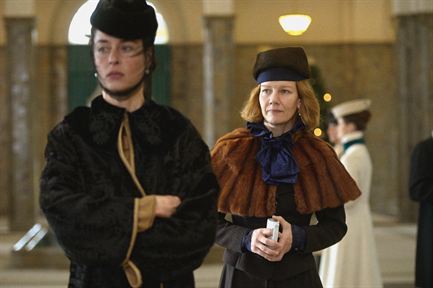


Susanne Wolff and Sandra Hüller as Empress Elisabeth and Countess Irma Sztáray in Sisi & Ich (2023).
#Sisi und Ich#Sisi and I#costume drama#historical drama#period drama#Sandra Hüller#Susanne Wolff#irma sztáray#elisabeth of austria hungary#elisabeth of austria#Elisabeth in Bavaria#German movie#german tv
41 notes
·
View notes
Text
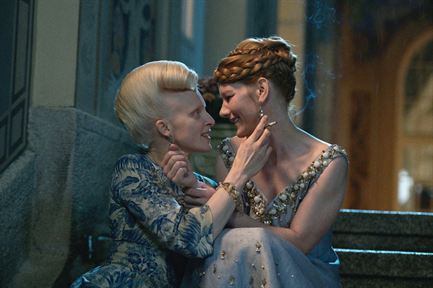
Anne Müller and Sandra Hüller as Baroness of Rothschild and Countess Irma Sztáray in Sisi & Ich (2023).
#sisi and i#sisi und ich#costume drama#historical drama#period drama#Sandra Hüller#irma sztáray#Anne Müller#Baronin von Rothschild#german movie
10 notes
·
View notes
Text



Sandra Hüller as Countess Irma Sztáray in Sisi & Ich (2023).
#Sisi und Ich#Sisi and I#costume drama#historical drama#period drama#Sandra Hüller#irma sztáray#german movie
17 notes
·
View notes
Text

Susanne Wolff and Sandra Hüller as Empress Elisabeth and Countess Irma Sztáray in Sisi & Ich (2023).
#Sisi und ich#Sisi and I#costume drama#historical drama#period drama#Susanne Wolff#Sandra Hüller#elisabeth in bavaria#elisabeth of austria hungary#elisabeth of austria#irma sztáray#german movie
11 notes
·
View notes
Text

New picture of Sandra Hüller as Countess Irma Sztáray in Sisi & Ich (2023).
Ahead of its public release, Sisi & Ich (2023) also received four nominations for the Deutscher Filmpreis (German Film Awards):
Best Female Lead for Sandra Hüller as Irma Sztáray
Best Audio Design
Best Camera
Best Costume Design
#Sisi und Ich#Sisi and I#costume drama#historical drama#period drama#Sandra Hüller#irma sztáray#Deutscher Filmpreis#german movie
7 notes
·
View notes
Text

Sandra Hüller and Susanne Wolff as Countess Irma Sztáray and Empress Elisabeth in Sisi & Ich (2023).
#Sisi und ich#Sisi and I#costume drama#historical drama#period drama#Susanne Wolff#Sandra Hüller#elisabeth in bavaria#elisabeth of austria hungary#elisabeth of austria#irma sztáray#german movie
2 notes
·
View notes
Text

Markus Schleinzer and Sandra Hüller as Emperor Franz Joseph and Countess Irma Sztáray in Sisi & Ich (2023).
#Sisi und Ich#Sisi and I#costume drama#historical drama#period drama#Markus Schleinzer#Sandra Hüller#emperor franz joseph#franz joseph of austria#irma sztáray#german tv#german movie
3 notes
·
View notes